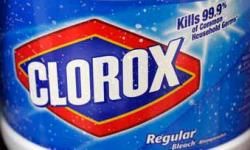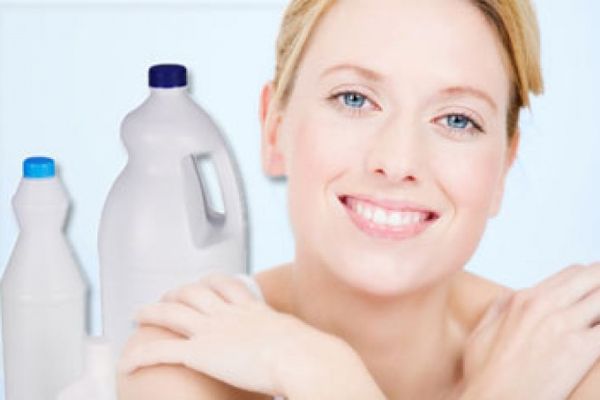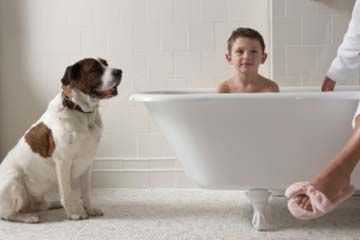Bleach can make your bathrooms spic and span, but can it do the same for your skin? If you've never heard of it before, the idea of using bleach on your face as a cleansing tool, acne solution, or way to help you skin glow might seem a bit extreme. But this harsh cleansing product (or a bleach-and-water solution) that rids your bathroom of bacteria and grime is gaining a following online as a way to kill the bacteria on your face.
Dermatologists, on the other hand, were not in favor of putting bleach anywhere near your face. "Bleach is absolutely too irritating and should not be used as a face wash," says Mona Gohara, MD, associate clinical professor, Yale School of Medicine, Department of Dermatology. "In the context of acne, it may be more irritating than helpful. I am sure it would be beneficial in the sense that it decreases bacteria; however, bleach is much more caustic to the skin than benzoyl peroxide, retinols, or salicylic acids which are irritating as well. If used incorrectly, bleach can cause extreme inflammation and dryness."
Advertisement
All that being said, Dr. Gohara says this harsh agent does work well in the context of the "bleach bath" for eczema as it helps to decrease bacterial colonization and infection. She said a quarter cup of bleach is placed in a bath tub and it can do wonders for children and adults suffering from itchy, flaky skin from eczema. But it's still best to check with a doctor first to see what they recommend for any eczema problems.
However, there are websites that advocate using a diluted bleach solution for treating acne on your face (after acknowledging the risk and recommending you check with a dermatologist before use). The logic is that bleach baths help in treating eczema and psoriasis, which are aggravated by Staphylococcus aureus bacteria. Because bacteria can be associated with breakouts, some believe bleach baths may help improve your acne situation. "Bleach is one of the most effective agents for killing staph bacteria," states BleachBath.net. [source: BleachBath.net]. But acne has many causes, including the overproduction of oil and the erratic shedding of dead skin cells, and can be aggravated by hormones and other factors. Eliminating the bacteria doesn't necessarily mean a clear complexion.
If your goal is to lighten dark spots or discoloration on your face, Dr. Gohara says you're much better off using fading creams that are designated to lighten facial discoloration——they're are primarily composed of hydroquinone, retinols, and antioxidants.
Dr. Andrew Ordon, board-certified plastic surgeon, and co-host on The Doctors, also did not recommend using bleach on your face because it's an abrasive product and will likely irritate the skin. "You can try to gently lessen the discoloration of your brown spots, dark spots, age spots, sun spots by using a little lemon and water, just like it lightens your hair." He said you'd have to apply the lemon and water combo daily to your dark spots for several weeks and possibly months in order for it to lighten them. And, of course, avoid the sun during that time to minimize additional damage.
Bottom line: Our experts say "don't this at home." Consult with your doctor first before starting any kind of DIY solutions to acne, and it's probably best to stick with acne products your dermatologist recommends.
Advertisement


